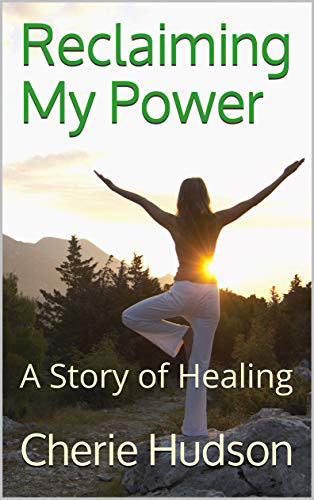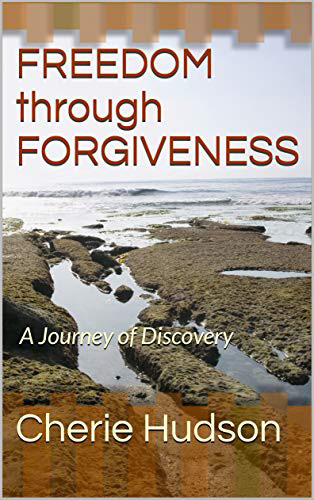
It took years of living with eating disorders for one brave woman to finally discover that true healing requires forgiveness… for herself and others.
—
Growing up, I heard the names my brothers called me… Hippo, Fatty, and every other fat name you can call an overweight human being. Around the age of 12 I began being bullied in school. For the next two years of my life, if you touched me in any way, my classmate would fall to the ground and yell, “I touched the goon.” Attending an all-girls Catholic high school wasn’t much better.
By the time I was 16, my journey with eating disorders began with anorexia.
At one point, I weighed 82 pounds. My body was beginning to shut down; I wasn’t able to get out of bed, my menstrual cycle stopped, and I was dizzy much of the time. When my parents finally took me to the doctors, they came up with no diagnosis since at that time, anorexia was not commonly known.
Eventually, I attempted to go on a diet to eat more food. Since I was doing this without medical guidance, I ended up becoming a compulsive overeater. Days led to years where I would go from store to store to purchase grocery bags of food — a sad attempt to keep supermarket clerks from knowing what I was doing.
My food runs typically lasted a couple of hours a day. Once done, I would sit in my living room and begin the binge. I ate so much that I would pass out and sometimes wake up with food on my face. By this time, my weight vacillated between 150 and 185 pounds. That’s when I opted for my next strategy: bulimia. In addition to throwing up, I used laxatives and would exercise for six hours a day.
Clearly, my life was out of control. What I was doing with food was masking all the hurts I had experienced in my childhood. My eating disorders stemmed from a deep-seeded feeling of anguish and anger that I turned on myself rather than addressing the hurtful behaviors of my family, my schoolmates, or my ex-spouses.
That’s when I discovered the power of these ‘F’ words: FREEDOM through FORGIVENESS.
Psychologists define forgiveness as a conscious, deliberate decision to release feelings of resentment or vengeance toward a person or group who has harmed you, regardless of whether they actually deserve your forgiveness. When we talk about forgiveness, people often feel that they need to give up something in order to exonerate the person who caused them harm. But forgiveness is not about overlooking or excusing the actions of the person causing the harm since forgiveness often helps you more than the other person.
The truth is that forgiveness is about compassion and grace. Forgiveness allows you to take back and reclaim your power.
Once you deeply and completely forgive the other person, they can no longer continue to hurt you. That’s why a ‘forgive and let go’ approach is more effective than the more typical ‘forgive and forget’ attitude towards forgiveness.
There are many health benefits to be gained from forgiveness. According to Mayo Clinic studies, this list includes less anxiety, stress and hostility; fewer symptoms of depression; a stronger immune system; improved heart health; and lower blood pressure. According to Dr. Karen Swarz of Johns Hopkins University: “Whether a simple spat or a long-held resentment, unresolved conflict may be affecting your physical health and studies show that the act of forgiveness can reap huge benefits. Forgiveness is an active process in which you make a conscious decision to let go of negative feelings even if you feel the person deserves it or not.”
In today’s climate of adversity there is a prevalent sense of ‘us v. them’ which creates division and a loss of community. Due to the adrenal glands that we all have, we can’t eliminate painful emotions, but we can learn ways to respond more powerfully and effectively when faced with such feelings.
Forgiveness is essential to living in peace, joy and ease, but there are two roadblocks that cripple us from experiencing profound forgiveness: FEAR and FAULT.
Once you tackle this dynamic duo, you open up space to move into a forgiveness process. To get to ultimate forgiveness, it is vital to start the process with spiritual practices to move away from extremes and release us from attachments. These practices create a fertile ground to cleanse our thoughts, words, and actions. Once that is established, you can then open your heart to artfully and intentionally paving the way to freedom.
Walking through the spiritual practices of forgiveness unfolds a deep consciousness. This discovery ignites your true essence and sets the stage to integrate all parts of your higher self. This beautiful and powerful awareness and acceptance allows you to forgive others… and yourself.
A key point to liberation is the act of forgiving yourself. We have a tendency to overlook ourselves, which is why including yourself in the forgiveness process is absolutely profound and essential. The truth is that we are so hard on ourselves and punish ourselves with negative thoughts, bad relationships and other behaviors that do not serve us.
Releasing yourself from this form of toxicity is the most sacred work that you can do.

I’d like to leave you with this quote:
Forgiveness is not always easy, yet it holds the power for freedom. Forgiveness allows the shackles to fall and deep healing to take place. How many of us are trapped in bondage because we have yet to forgive the people who have hurt us the most? It is impossible for the garden of your heart to bloom when bitterness and anger have taken root.
~ Unknown
>>If you’re interested in diving deeper with me to transform your health, I’ve created the FREEDOM Through FORGIVENESS 21-Day Program; you can download a free sample day here.
You may also enjoy reading Flipping your Mindset: The Healing Power of Affirmations, Mindfulness and Gratitude by Daniel Wittler

